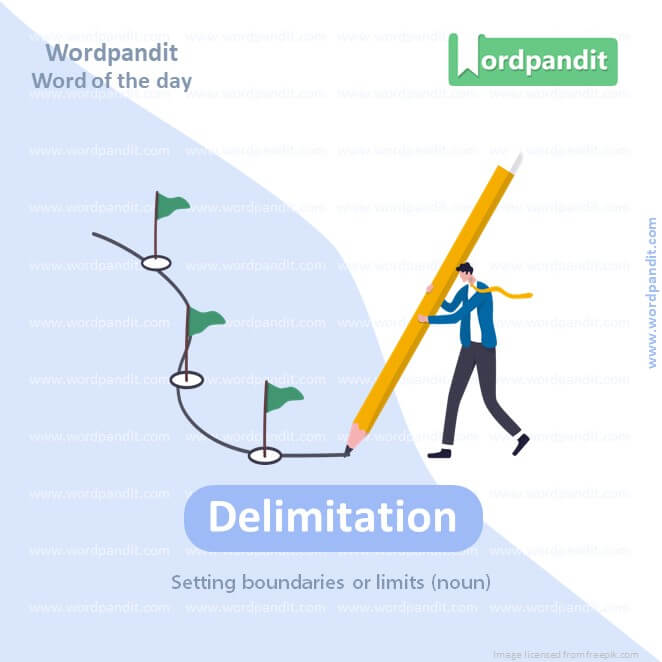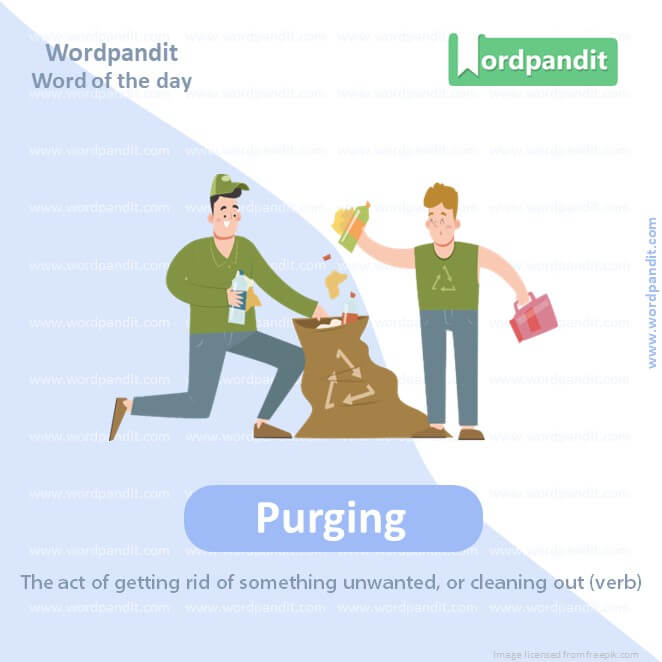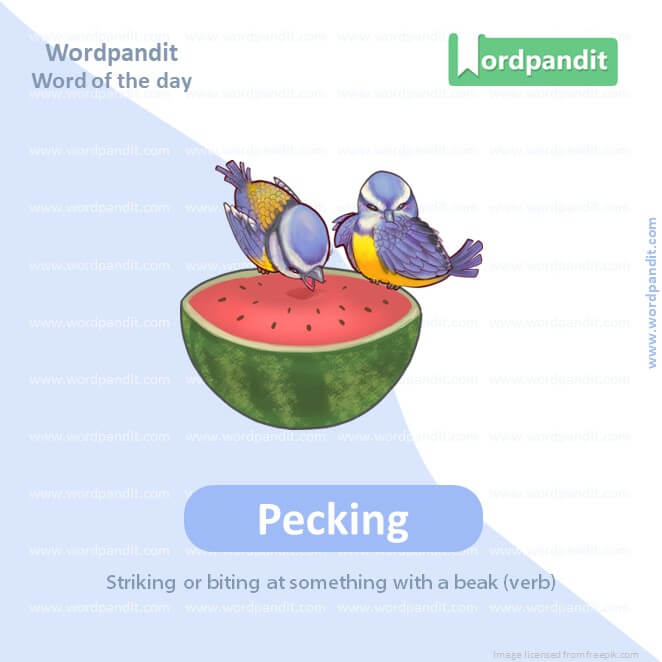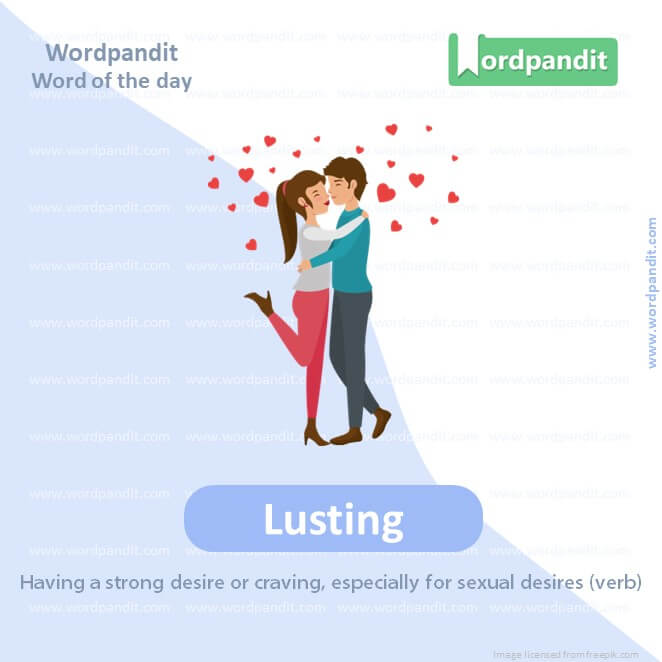Daily Vocabulary Words: Enhance Your Lexicon with Leading Newspapers & Publications
Welcome to the Daily Vocabulary section at Wordpandit!
Our mission is straightforward: to bring you essential vocabulary words featured in top newspapers and publications worldwide. By focusing on words you’ll encounter in renowned sources, we aim to help you enhance your vocabulary effectively and practically.
Our selection includes words from:
– The New York Times
– The Washington Post
– Scientific American
– BBC
– The Guardian
– Psychology Today
– Wall Street Journal
– The Economist
– The Hindu
– The Times of India
– The Economic Times
– Hindustan Times
– Live Mint
– The Indian Express
– And many more.
We are committed to your vocabulary development. Simply visit this section regularly and explore the daily posts. This is your go-to repository for commonly used words, providing significant practical benefits by familiarizing you with vocabulary from the leading publications listed above.
Make it a habit to visit our website daily and expand your lexicon with words from top newspapers and publications.
WORD-1: Straddling
CONTEXT: it seems hard not to conclude this straddling of very different demographics is deterring the Greens from positioning themselves as an out-and-out leftist political party.
SOURCE: Guardian
EXPLANATORY PARAGRAPH: Imagine sitting on a bench and having one leg on one side and the other leg on the other side. “Straddling” is when you sit or stand with your legs on either side of something.
MEANING: Straddling is like when you stand or sit with your legs on both sides of something, like a big rock or a wide log. It’s like a cowboy riding a horse (Verb)
PRONUNCIATION: STRAD-ling
SYNONYMS: spanning, bridging, bestriding, mounting, riding
USAGE EXAMPLES:
1. He was straddling the bike, waiting for the race to start.
2. The city straddles the river, with bridges connecting both sides.
3. The policy straddles two different approaches to healthcare.
4. She straddled the line between confidence and arrogance.
WORD-2: Indulging
CONTEXT: But if the ECI starts withdrawing the symbol for various violations that political parties are indulging in these days, I think most of the parties are likely to lose their symbol at one stroke.
SOURCE: Hindustan times
EXPLANATORY PARAGRAPH: Imagine you have a favorite snack, like cookies, and you decide to eat a lot of them just because they make you happy. “Indulging” means allowing yourself to enjoy something you like a lot.
MEANING: Allowing oneself to enjoy the pleasure of (verb).
PRONUNCIATION: in-DUL-jing
SYNONYMS: pampering, treating, spoiling, gratifying, satisfying
USAGE EXAMPLES:
1. He was indulging in his favorite hobby of painting.
2. They indulged in a luxurious vacation.
3. She indulged her sweet tooth with a large slice of cake.
4. Indulging in a little relaxation, they took the day off work.

WORD-3: Enthused
CONTEXT: It depends what Labour’s stance is on Palestine, if you ask me,” says one – but neither are enthused by the election, and declare they need to do their homework.
SOURCE: Guardian
EXPLANATORY PARAGRAPH: Imagine getting a new toy that you really wanted, and you’re so excited about it that you can’t stop talking about how great it is. “Enthused” means being very excited and energetic about something.
MEANING: Filled with enthusiasm; very excited (verb).
PRONUNCIATION: en-THOOZD
SYNONYMS: excited, eager, animated, elated, exhilarated
USAGE EXAMPLES:
1. She was enthused about the upcoming science fair.
2. The crowd was enthused by the performance.
3. He enthused over the possibilities of the new technology.
4. The team was enthused by the coach’s motivational speech.

WORD-4: Delimitation
CONTEXT: There are already faint noises of unease among the political elites in some States, especially in the south, regarding speculation about future delimitation in which some northern States could gain abnormal numbers in the central legislature.
SOURCE: Hindustan times
EXPLANATORY PARAGRAPH: Imagine drawing a line around your part of the sandbox so that everyone knows that’s your space to play in. “Delimitation” is like that line—it means setting the boundaries or limits of something.
MEANING: Setting boundaries or limits (noun) .
PRONUNCIATION: dee-lim-i-TAY-shun
SYNONYMS: demarcation, boundary setting, definition, limitation, bounding
USAGE EXAMPLES:
1. The delimitation of the marine reserve was established by law.
2. A clear delimitation of responsibilities helps in effective teamwork.
3. The treaty included the delimitation of the border between the two countries.
4. The study required the delimitation of the area being researched.

WORD-5: Purging
CONTEXT: they would be in pole position if they lose with a strong showing in second place. With Labour purging its left flank, the Greens may offer a life raft – that is, if those believing in a radical alternative to Toryism don’t want to sink.
SOURCE: Guardian
EXPLANATORY PARAGRAPH: Imagine cleaning your room by taking out all the toys you don’t play with anymore so that everything looks nice and tidy. “Purging” means getting rid of things you don’t need or want.
MEANING: The act of getting rid of something unwanted, or cleaning out (verb).
PRONUNCIATION: PUR-jing
SYNONYMS: eliminating, expelling, clearing, cleansing, removing
USAGE EXAMPLES:
1. The company purged old files from its servers.
2. He was purging his closet of clothes he no longer wore.
3. The regime purged dissidents from its ranks.
4. Purging unnecessary items, she decluttered her home.
WORD-6: Aggravating
CONTEXT: It means that an extra aggravating factor in party efforts is the problems getting the ground game going.
SOURCE: Guardian
EXPLANATORY PARAGRAPH: Imagine you’re trying to do your homework, and your little brother keeps making noise and won’t stop. That’s “aggravating.” It means something that makes you annoyed or frustrated.
MEANING: Making a problem or offense worse or more serious (adjective).
PRONUNCIATION: AG-gruh-vay-ting
SYNONYMS: annoying, irritating, exasperating, worsening, intensifying
USAGE EXAMPLES:
1. The constant noise was aggravating her headache.
2. He found her constant questions aggravating.
3. The delays were aggravating an already tense situation.
4. She reacted sharply to the aggravating circumstances.

WORD-7: Pecking
CONTEXT: The bifurcation of Andhra Pradesh can give us some idea as to how reconfiguration can radically alter the pecking order of States.
SOURCE: Hindustan times
EXPLANATORY PARAGRAPH: Imagine watching birds at a feeder, picking up seeds with their beaks quickly one after another. “Pecking” is what we call this action of birds quickly hitting or picking something up with their beaks.
MEANING: Striking or biting at something with a beak (verb); nibbling or picking at food (verb).
PRONUNCIATION: PEK-ing
SYNONYMS: nibbling, picking, biting, tapping, nipping
USAGE EXAMPLES:
1. The chickens were pecking at the ground looking for food.
2. He was nervously pecking at his food during dinner.
3. The bird pecked at its reflection in the window.
4. She pecked at her salad, not very hungry.
WORD-8: Tetchily
CONTEXT: We responded tetchily – either by simply presiding over a system we did not control, or by randomly demanding changes whose consequences we barely understood.
SOURCE: Guardian
EXPLANATORY PARAGRAPH: Imagine you’re trying to focus, and someone keeps distracting you, making you feel annoyed quickly. When you respond in a slightly annoyed or irritated way, that’s being “tetchily.”
MEANING: In an irritated or annoyed manner (adverb).
PRONUNCIATION: TECH-i-lee
SYNONYMS: irritably, testily, snappily, grumpily, petulantly
USAGE EXAMPLES:
1. He tetchily answered the phone during the meeting.
2. She spoke tetchily when interrupted.
3. He tetchily brushed off the comments.
4. They argued tetchily over the minor details.
WORD-9: Abnegation
CONTEXT: the wounds of a complete abnegation of Muslim representation in the outgoing government had not healed, a fresh stab was made at the idea of India.
SOURCE: Hindustan times
EXPLANATORY PARAGRAPH: Imagine you really want the last piece of cake, but you let your friend have it instead. “Abnegation” is when you give up your wants or needs for others or because you think it’s the right thing to do.
MEANING: The act of renouncing or rejecting something desired or valuable (noun).
PRONUNCIATION: ab-ni-GAY-shun
SYNONYMS: renunciation, denial, refusal, rejection, relinquishment
USAGE EXAMPLES:
1. The monk’s life is one of abnegation.
2. Abnegation of worldly goods is part of their belief.
3. She showed abnegation by donating her inheritance to charity.
4. The philosophy promotes abnegation of violent responses.

WORD-10: Lusting
CONTEXT: You get to see women as players too – and this is also what is so radical about I Kissed a Girl. It shows women lusting after women, without it being for the male gaze.
SOURCE: Guardian
EXPLANATORY PARAGRAPH: Imagine really, really wanting a new toy that you saw in a store, so much that you can’t stop thinking about it. “Lusting” means having a very strong desire for something, especially in a way that feels overwhelming.
MEANING: Having a strong desire or craving, especially for sexual desires (verb).
PRONUNCIATION: LUH-sting
SYNONYMS: craving, yearning, desiring, coveting, pining
USAGE EXAMPLES:
1. He was lusting after the latest model of the sports car.
2. She lusted for success in her career.
3. They were lusting after fame and recognition.
4. He found himself lusting for adventure and excitement.
Vocabulary English
In the fascinating journey of language exploration, ‘vocabulary English’ stands as a powerful pillar. It represents the diverse array of words that bring thoughts and emotions to life. However, to unlock the full potential of ‘vocabulary English’, it’s necessary to adopt a comprehensive and strategic approach.
Understanding ‘vocabulary English’ goes beyond the mere repetition of words. It demands an intricate weave of understanding, memorization, and application. To grasp the essence of the ‘vocabulary English’, diversify your language resources. Engage with novels, biographies, news articles, and digital content to introduce yourself to words in real-world contexts.
A key to mastering ‘vocabulary English’ involves leveraging effective memory techniques. Use flashcards and digital apps that support active recall and spaced repetition. Mnemonic devices can also be beneficial. Establishing personal, visual, or narrative connections to words foster better recall and understanding.
Consistent exposure to ‘vocabulary English’ greatly enhances learning. Create dedicated time slots for regular vocabulary practice. This method not only consolidates learnt vocabulary but also introduces new words on a daily basis, ensuring a balanced and continuous learning process.
Practice holds the power to transform your ‘vocabulary English’ learning experience. Application of learnt words in daily conversations, professional communication, or digital platforms embeds them deeper into your long-term memory.
In essence, embracing ‘vocabulary English’ is a marathon, not a sprint. It requires immersion in various resources, using memory-enhancement techniques, continuous exposure, and above all, incessant practice. As you navigate this path, you’ll watch your ‘vocabulary English’ grow, raising your language proficiency and connectivity with the English-speaking world. It’s a fascinating journey that opens doors to different cultures, experiences, and opportunities. So, step forth, embrace ‘vocabulary English’, and let the journey begin!













